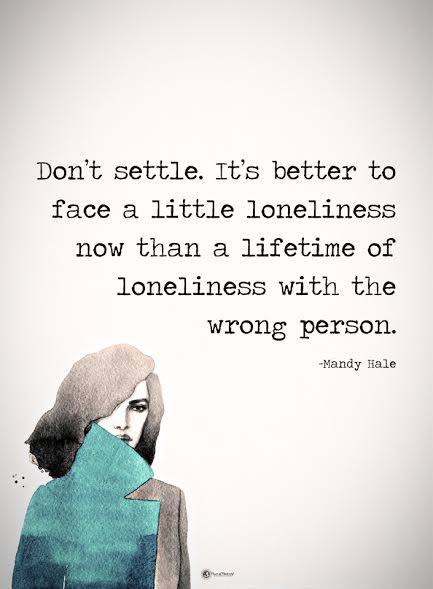People with Post Traumatic Stress Disorder (PTSD) have successful relationships with their loved ones all the time. However, it’s not without unique challenges that can put a strain on couples. If everyone is committed to the success of their relationship, they can achieve happiness.
*For this article, we’ll refer to a person who has post-traumatic stress disorder as a survivor.
As you can imagine, suffering from PTSD can make it difficult for a survivor to hold relationships with people due to emotional and psychological issues. This case is especially true because the people in the survivor’s life can become overwhelmed with all the problems that occur. It puts a strain on everyone involved, and this includes all relationships, not just romantic ones.
Knowing how a person with post-traumatic stress disorder handles relationships can be a big help for everyone involved. It can prepare you for issues that may arise and help take some of the strain from dealing with the symptoms. Keep reading to learn about seven ways that people with post-traumatic stress disorder handle relationships differently.
What is Post Traumatic Stress Disorder?
Psychiatrists define post-traumatic stress disorder as a psychiatric condition that occurs in people who’ve witnessed or experienced a traumatic event. This condition is characterized by an inner turmoil that they continuously deal with. People who have post-traumatic stress disorder may have nightmares, flashbacks, depression, trouble making social connections, or uncontrolled fear, sadness, or anger.
People who have post-traumatic stress disorder may seem to lead a healthy life until they’re triggered by something. It could be a sound, a touch, a smell, or just about anything.
Post-traumatic stress disorder is most common in war veterans, especially older vets. However, it can happen to civilians also from life experiences such as car accidents, family deaths, life-threatening experiences, or other traumatic situations. They may even develop the condition from indirectly experience traumatic events, such as merely learning about the death of a loved one.
Can Post Traumatic Stress Disorder Be Cured?
Since post-traumatic stress disorder is a mental illness, it can’t precisely be cured. However, with proper support, it can be managed enough for a person to lead a healthy life. That’s great news because it means that a survivor can have normal relationships.
How Does Post Traumatic Stress Disorder Affect Relationships?
It really takes the support of a village to helps someone suffering from the post-traumatic stress disorder. Remember that they aren’t choosing to be the way they are.
1. Constant Feelings of Fear, Anxiety, Irritability, or Stress
Survivors of PTSD are often plagued by scary feelings of fear, anxiety, irritability, or stress. This can make it difficult to interact with a survivor, especially in public. Bizarre behavior can happen, making it embarrassing for everyone involved.
These feelings can often make it difficult for the survivor to relax. It may lead to a lot of ruined dates or angry outbursts at functions. This is especially true if a lot is going on, and the survivors get overwhelmed with everything that’s happening.
2. Intimacy Difficulties
People who have post-traumatic stress disorder can have trouble with intimacy, especially when their trauma comes from sexual abuse. Survivors may find that they don’t enjoy sex, or they can’t concentrate on it. They may not be able to perform at all.
For romantic partners of survivors, this can be incredibly frustrating. It can mean the end of the relationship in the long run.
If you’re in a relationship with someone who has intimacy difficulties due to PTSD, you must be willing to have an extreme amount of patience. Just your touch could be enough to set them off, especially if the abuse was recent.
As a survivor gets the therapy they need, this can help with sexual difficulties due to PTSD. However, a small percentage of survivors may get worse or may never get over it. Whatever the case is, be as supportive as possible.
3. Trouble Sleeping
Sleeping difficulties are common symptoms of someone who has post-traumatic stress disorder. They may have trouble falling asleep or staying asleep. Nightmares may also plague them. Insomnia has been reported as high as 70% of people with post-traumatic stress disorder.
If you sleep with someone that has post-traumatic stress disorder, you’ve probably noticed that their sleep problems have become your sleep problems. If you are about to begin cohabitating with someone that has post-traumatic stress disorder, you’ll soon find out how they’ll affect your sleep. You may even wake up in the middle of the night to the survivor frantically or violently acting out nightmares.
It’s a situation that’s not for the faint of heart.
4. A Person With PTSD May Feel Unworthy
Survivors can sometimes develop a sense of feeling unworthy of love, which causes even more inner turmoil. They may have trouble trusting people, and they may think that the world is unsafe. This distrust can put a lot of strain on relationships because the survivor will continuously need reassurance.
In relationships, the survivor can feel paranoid about everyone’s intentions. They may accuse people of not having their best interest at heart, or they may continuously question people’s loyalty. They can become so dependent on everyone’s approval that it becomes overwhelming to those around the survivor.
It’s worse for romantic relationships. The survivor may have trouble trusting that you are. They may need constant phone calls, pictures proving who you’re with, or they may meltdown at the slightest change in plans. They may continuously question why you’re with them and what you see in them.
5. Social Isolation
People dealing with post-traumatic stress disorder can often have trouble interacting generally with others for all the reasons that we discussed earlier. They may simply feel unsafe around crowds or unable to socialize with people. They may be plagued with feelings of insecurity.
These feelings can cause them to withdraw from people, even people they’re close to. In a romantic relationship, this can cause a lot of stress since the survivor may not ever want to do anything or go anywhere. The survivor may become dependent on their partner for every social interaction. It’s hard to be someone’s everything.
Even worse, the survivor might withdraw from their romantic partner also. This can cause the partner to feel alone or abandoned, which endangers the relationship.
6. Denial
Some people coping with PTSD may be in denial that anything is wrong with their relationship. After all, there may be times where the relationship is perfectly healthy, and you’re happy, and everything seems perfect. Then, out of nowhere, a trigger occurs, and you’re left feeling confused while the survivor doesn’t recognize the problem.
Not all people with post-traumatic stress disorder are scary, sad, depressed, and angry – at least not on the surface. This variation can make it easy for someone to dismiss the symptoms of PTSD.
Their PTSD may manifest itself in other ways, such as hypersensitivity, communication issues, or dissociation. These types of traits may not be alarming, so they may not see them as a problem. However, even if the survivor can’t see it, you can see something is wrong.
It can be hard to convince survivors to get help sometimes, especially if they are in denial. However, if you care about them, keep trying.
7. Abusive Behavior
One of the most significant issues that partners have with their survivor is abusive behavior. Let’s be clear – not everyone with post-traumatic stress disorder becomes abusive. It’s more likely that they’ll withdraw rather than become abusive. However, some do, and it can get out of control if it isn’t addressed as soon as possible.
When the survivor becomes abusive, it may be time to leave, especially if there are children involved. They may not mean to hurt you, but if they’re triggered, things could get worse. Once you’re safely away from the survivor, you can try to help them from a distance. Just remember that your safety is the priority.
Final Thoughts on How PTSD Survivors Handle Relationships
People dealing with post-traumatic stress disorder want to have healthy lives and normal relationships. Most people put their best foot forward. They try hard but, no matter how hard they work at it, they still come up short if they don’t get help.
In these situations, they need love and support from the people around them. It’s easy when the survivor wants help and wants to get better. Eventually, with professional advice and support loved ones, things may be normal.
However, if the survivor is not willing to get help, don’t be afraid to walk away. It can be a hard thing to do, but it doesn’t help anyone if you get post-traumatic stress disorder from trying to help someone else with post-traumatic stress disorder.
In the end, just keep in mind that a successful relationship with a survivor is possible. They may approach the relationship differently while in recovery, but with some hard work, love, and support, they can be the friend, family member, or lover that you dream of.


















